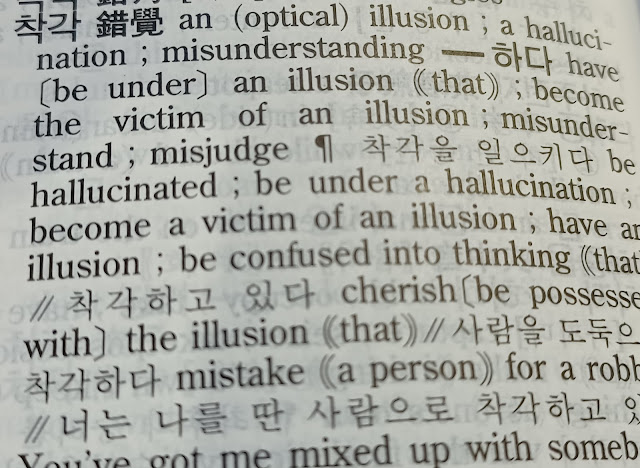ANSWER: No! It's impossible.
"Hymne a l'amour" is a French love song that translates into Korean as "사랑의 찬가" ("Hymn of Love"). The French lyrics were written by the late French singer Édith Piaf after her lover, French boxer Marcel Cerdan, died in a plane crash in 1949. The song is a testament to how devastated the French singer was by her lover's death.
There are different Korean translations of the French song: literal translations and translations that are meant to be sung. The following is my translation of the Korean version sung by Korean goddess Choi Jung-won (최정원):
"사랑의 찬가"
"Hymn of Love"
하늘이 무너져 내리고
땅이 꺼져 버린다 해도
Even though the sky comes crashing down,
Even though the earth collapses beneath me,
당신만 날 사랑한다면
내겐 두려움 없네
If you just say you love me,
I will have no fear.
사랑이 아침을 채우고
그 사랑 내 몸을 감싸면
If love fills my mornings,
If that love shields my body,
아무것도 두렵지 않아
당신이 날 사랑하니까
I will fear nothing
Because you love me.
"MARCEL"
하늘이 무너져 내리고
땅이 꺼져 버린다 해도
Even though the sky comes crashing down,
Even though the earth collapses beneath me,
당신만 날 사랑한다면
If you just say you love me, . . .
세상 끝이라도
나는 갈거야
당신 원한다면
I will go to the ends of the earth
If that is what you want.
하늘에 달이라도
눈 부신 해라도
따다 바치겠어요.
Though it be the moon or the blinding sun,
I will pluck them from the sky and give them to you.
친구도 버리고
모든 걸 버리고
당신 원한다면
I will forsake even my friends,
I will forsake everything,
If that is want you want.
사람들 비웃어도
뭐든 할 수 있어요
당신이 원한다면
Even though people ridicule me,
I can do it all,
If that is what you want.
운명이 우리를 갈라놓고
신께서 날 버린다 해도
Even though Fate divides us,
Even though God forsakes me,
당신만 날 사랑한다면
당신을 따를게요
If you just say you love me,
I will follow you.
우리 영원히 함께해요
We will be together forever.
끝없는 푸르름 속에서
행복뿐인 하늘에서
다시 만날 것을 믿어요.
In the endless blue,
In the pure happiness of heaven,
I believe we will meet again.
행복뿐인 하늘에서
다시 만날 것을
In the pure happiness of heaven,
We will meet again.
다시 만날 것을
믿어요
I believe we will meet again.











